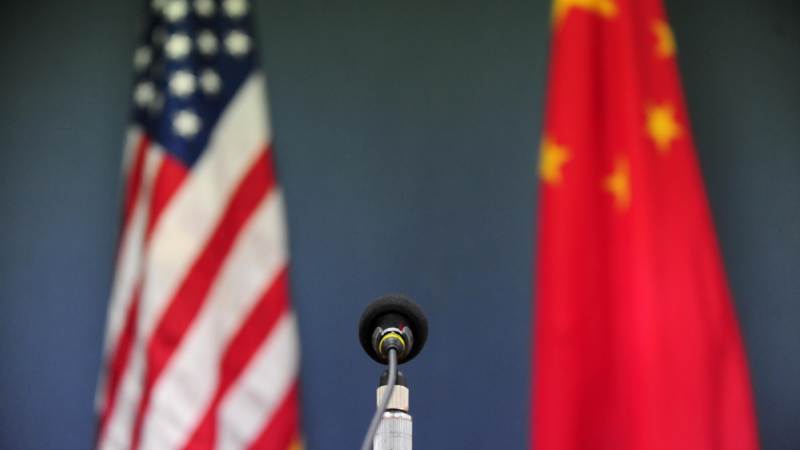Trade war escalates as China hits back with 34% tariffs on all U.S. goods
BEIJING – China has hit back at new U.S. tariffs with sweeping levies of its own on American products, sharply escalating the trade war between the world’s two biggest economies.
China’s finance ministry said on Friday a 34% tariff will be imposed on all U.S. imports from April 10, mirroring President Trump’s levy on Chinese goods that was announced as part of his global tariff blitz on Wednesday.
“China urges the United States to immediately lift its unilateral tariff measures and resolve its trade differences through consultations in an equal, respectful and mutually beneficial manner,” the ministry said in a statement.
The research firm Capital Economics said the Chinese retaliation did not bode well for prospects of finding a resolution.
“This is an aggressive, escalatory response that makes a near-term deal to end the trade war between the two superpowers highly unlikely,” its analysts wrote in a note.
But the new Chinese tariffs on U.S. goods do not bring China’s across-the-board levies to the same level as those of the U.S. on Chinese goods. Prior to Wednesday, Trump had already imposed tariffs of 20% on Chinese products, and his latest move took the overall rate to 54%. China had responded to those earlier tariffs with targeted tariffs of its own and other measures.
American companies are also affected
The latest Chinese countermeasures also included restrictions on U.S. companies and rare earth exports.
China’s commerce ministry said on Friday it is adding 16 U.S. entities to an export control list, banning them from acquiring Chinese products designated as dual-use, for civilian and military purposes.
“These entities have behaved in a manner that may jeopardize China’s national security and interests, and no export operator is allowed to violate the above-mentioned provisions,” it said in a statement.
The commerce ministry put 11 other U.S. companies on a so-called “unreliable entity” list, effectively blacklisting them. It accused the companies of “carrying out so-called military technology cooperation with Taiwan despite China’s strong opposition”. Beijing considers self-governed Taiwan a part of China.
The commerce ministry also announced that it is imposing export controls on seven types of rare earth minerals. They include samarium (钐), gadolinium (钆), terbium (铽), dysprosium (镝), lutetium (镥), scandium (钪) and yttrium (钇).
In addition, China’s customs administration is suspending some farm product import qualifications for several American companies.
In explaining its retaliatory tariffs, the finance ministry said the imposition of tariffs by the United States is “not in line with international trade rules, seriously undermines China’s legitimate rights and interests, and is a typical unilateral bullying practice”.
The U.S. action “not only undermines the U.S. self-interest, but also jeopardizes the development of the global economy and the stabilization of production and supply chains,” it said.
New York Giants hire John Harbaugh as coach after identifying him as their top choice
Harbaugh joins the Giants 11 days after he was fired by the Baltimore Ravens. The Super Bowl champion is now tasked with turning around a beleaguered franchise.
US launches new retaliatory strike in Syria, killing leader tied to deadly Islamic State ambush
A third round of retaliatory strikes by the U.S. in Syria has resulted in the death of an Al-Qaeda-affiliated leader, said U.S. Central Command.
NASA rolls out Artemis II craft ahead of crewed lunar orbit
Mission Artemis plans to send Americans to the moon for the first time since the Nixon administration.
Trump says 8 EU countries to be charged 10% tariff for opposing US control of Greenland
In a post on social media, Trump said a 10% tariff will take effect on Feb. 1, and will climb to 25% on June 1 if a deal is not in place for the United States to purchase Greenland.
‘Not for sale’: massive protest in Copenhagen against Trump’s desire to acquire Greenland
Thousands of people rallied in Copenhagen to push back on President Trump's rhetoric that the U.S. should acquire Greenland.
Uganda’s longtime leader declared winner in disputed vote
Museveni claims victory in Uganda's contested election as opposition leader Bobi Wine goes into hiding amid chaos, violence and accusations of fraud.






